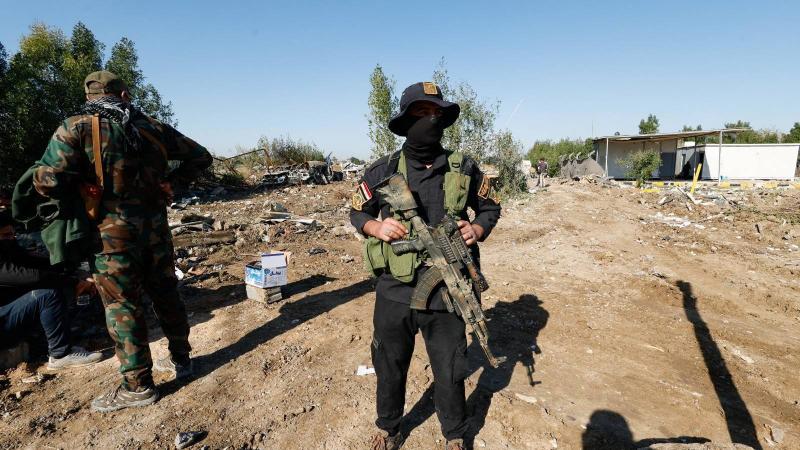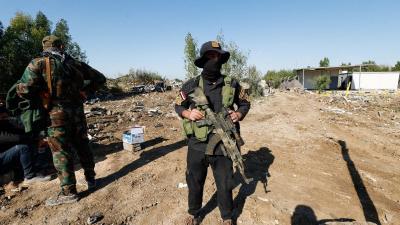Sources told Reuters that a powerful Iraqi faction, which has carried out dozens of attacks on American forces since October, was forced to announce a suspension of its attacks due to pressure from Tehran and ruling Iraqi parties that felt the faction had crossed a red line. Washington stated that the Iran-aligned Kata'ib Hezbollah was involved in a drone attack on the Jordan-Syria border on Sunday, which resulted in the deaths of three American soldiers and injured dozens, pledging a strong response.
On Tuesday, Kata'ib Hezbollah announced that it had halted all attacks on American forces to avoid embarrassing the Iraqi government, making rare public remarks about disagreements with Iran and the so-called "Axis of Resistance." Analysts and politicians noted that the abrupt announcement was the clearest indication yet that Tehran and influential Iraqi groups want to avoid a regional conflict related to the war in Gaza, representing a pause after dozens of attacks on American forces since October.
Renad Mansour, a senior researcher at the Chatham House think tank in London, stated that "the groups in the Baghdad government are concerned that Iraq could become a battleground for a wider regional conflict and have internal reasons not to risk the current situation."
The ceasefire ended dozens of attacks on American forces in Syria and Iraq carried out by the Islamic Resistance Group in Iraq, which includes armed factions such as Kata'ib Hezbollah. This ceasefire had lasted for months and had disrupted governmental efforts to stabilize the country after decades of conflict.
Four sources, including a Shia politician, an Iraqi official, and an individual who met with armed factions in recent days, indicated that the killing of American soldiers in Jordan, a close ally of the United States, was a step too far. The sources said Tehran, fearing a broad American reaction, publicly stated that it was not involved and sent undisclosed messages to Kata'ib Hezbollah to stop, while helping Iraqi Shia factions in the government mediate an end to the attacks.
The spokesman for Kata'ib Hezbollah could not be reached for comment, and Iranian officials did not respond to requests for comment. A knowledgeable Shia politician said, "This comes as a result of internal pressures and our neighbor's (Iran's) desire to halt the escalation." Another source said, "It was a real collective effort involving our neighbor," adding that other Iraqi factions also committed to stopping the attacks but might resume them if there were a strong U.S. response. The source added, "If the United States expands in the coming days, things could change."
### "A Risky Balance"
In 2020, the U.S. killed Iranian Quds Force commander Qassem Soleimani and Kata'ib Hezbollah leader Abu Mahdi al-Muhandis in a drone strike at Baghdad International Airport. The strike came days after the U.S. held Kata'ib Hezbollah responsible for the killing of an American contractor, and Iraqi officials fear that a similarly strong response could lead to a new cycle of violence.
The Shia Coordination Framework in Iraq, a major backer of the government, includes Iraqi factions such as Badr Organization and Asa'ib Ahl al-Haq, which fought American forces for years following the U.S.-led invasion in 2003, but have recently shifted their focus to political and economic gains. Five informed sources stated that these groups opposed the recent attacks targeting American forces, leading to a rare public dispute with the hardline factions that felt their political cover was waning.
A source familiar with the thinking of senior leaders in the Islamic Resistance groups said, "They felt they were cornered." In announcing the cessation of their attacks, Kata'ib Hezbollah stated that Iran and other allies "often object to pressure and escalation against U.S. occupying forces." Renad Mansour of Chatham House noted, "This is always a balance between fighting and showing strength without the desire to escalate too far, and thus they try to maintain a highly risky balance of violence." He went on to say, "This balance is disrupted with the killing of American soldiers, as happened in 2019 when it led to the U.S. killing Soleimani and al-Muhandis."




